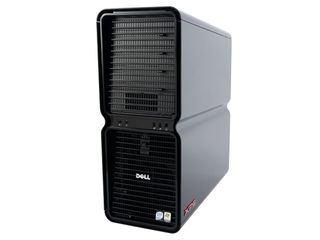10 things Windows PCs should do - but can't
Our pet hates which really should have been fixed by now

1. Turn on instantly
When offered a deep fat fryer that could cook a side of beef in 30 seconds, Homer Simpson once complained, 'But I want it now!' We wait much longer to use our PCs every morning, but why?
PCs have long promised a faster boot time, with various suspend and resume options trying their best to fulfil that promise. But suspending to RAM risks losing your data in a power outage, and resuming from disk hibernation is only a bit faster than a full boot.
Even hybrid hard disks with flash memory merely speed things up, without providing that immediacy we now take for granted with our TVs and DVD players. The best we've been able to expect so far from our PCs is having limited access to a limited range of functions very quickly via a cut-down BIOS-based system, such as Phoenix's Hyperspace. But if we want the full capabilities of Windows, it looks like the waiting will go on for the foreseeable future.
2. Be as reliable as a consumer electronics device
There are some things in life we don't like but we're used to by now. The England football team will never live up to our expectations, Posh Spice has more money than sense, and your PC will crash eventually. Why do we tolerate this when most of the electronic devices in our living rooms simply switch on and work, and if they don't we take them back to the shop?
Although Windows XP was a huge leap forward after Windows 9x, and Vista's driver model is supposed to make it even more bullet-proof, it still can't compete with (admittedly less feature-rich) consumer electronic devices for reliability. As great as Windows Media Center Edition is, there's a reason why platforms such as Viiv, which try to make a PC the hub of your digital home, haven't ousted the set-top PVRs and games consoles from our living rooms. We don't trust them enough, nor are they anywhere as easy to use.
3. Tell us what is really wrong
Windows error codes. From time to time we're faced with these cryptic messages from our operating system. But it's never clear what they mean. Sure, you can pop them into the Microsoft knowledge Base - or even Google - to find out. A bit of searching will usually call up their meanings. But if this is the case, why can't the same facility be built right into Windows? Allegedly, this could be on its way in a future version of Windows. But it's still a surprise it isn't a feature already.
4. Update everything automatically
It's nice to know the security of your Windows PC is being kept up to date by Windows Update, and one or two of your applications might be checking for patches when they load (such as Adobe's Creative Suite 3). But most Windows software doesn't keep itself patched automatically - it leaves the job up to you.
Get daily insight, inspiration and deals in your inbox
Get the hottest deals available in your inbox plus news, reviews, opinion, analysis and more from the TechRadar team.
Windows is very complicated and there are countless software combinations you can run. But surely it wouldn't be impossible to have a standard for checking if the software (and drivers) have new patches available, giving you the option to install them when you're ready? After all, Linux has been able to do this for years.
5. Organise your files for you
If you've ever owned a Palm PDA of some sort, one thing you are likely to have appreciated is the way all documents of the same type appear to be in the same place. In reality, you don't have to know where they are kept - it doesn't really matter. The physical location of a file is only important when you need to move it around. Palms can do this because their file system is actually a database.
